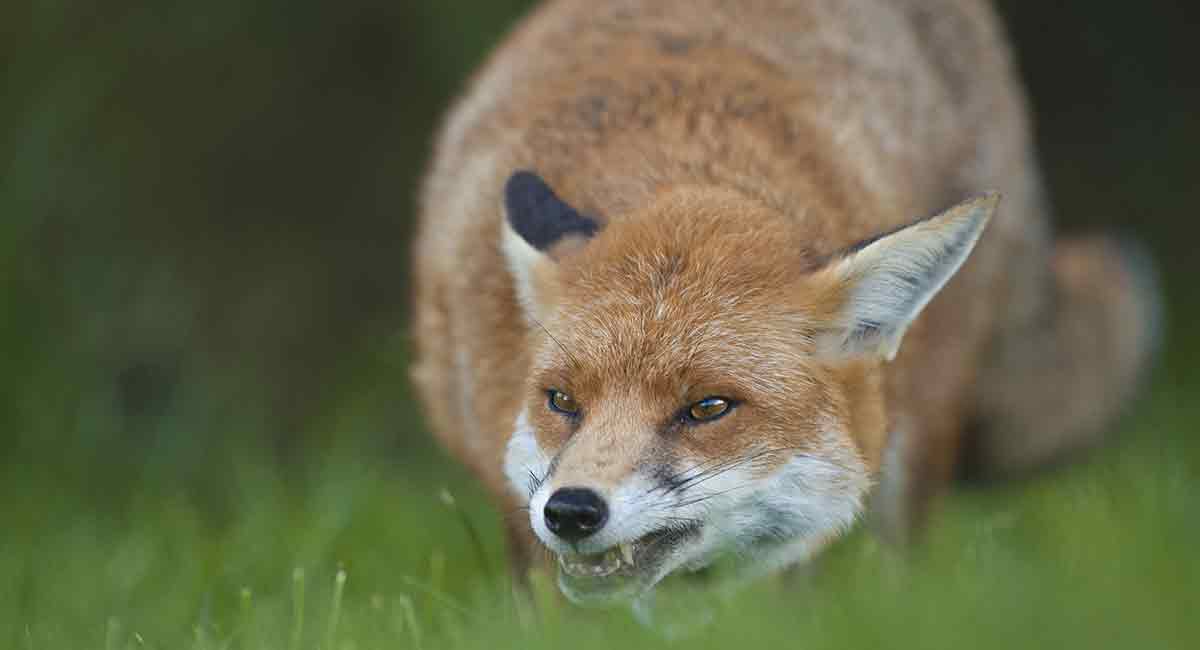Feeding foxes: not such a good idea
Why you shouldn’t.
One of our most attractive and interesting wild mammals, the fox receives a very varied press.
In recent months, an incident in London where a small child was badly bitten by a wild fox has highlighted the extent to which foxes have integrated themselves into urban and suburban areas.
Love them or loathe them, foxes are here to stay, and are likely to continue to come into conflict with man as they increasingly take up residence within his communities.
For those of us that enjoy watching these interesting wild animals it can be very tempting to encourage visiting foxes to stay longer in our gardens, and to come closer to our windows so that we can watch them without disturbing them.
The best way to encourage foxes is of course to feed them. And this is what many people do. The purpose of this article is to put forward the key reasons why we should not feed foxes, both for our sakes, and for the foxes sake too.
For foxes sake
Foxes that are regularly fed by humans tend to lose some of their fear of people. This puts them at increased risk of road death, of poisoning (accidental and deliberate), trapping, and snaring.
By feeding foxes in your garden you are inadvertently putting them at far greater risk of an untimely and unpleasant death
For your own sake
Increasing numbers of incidents are being reported where foxes are entering homes, through open doors, windows, cat flaps etc. Whilst attacks on humans are still very rare, small children are very vulnerable.
Foxes are small, but determined predators and their bites can be serious, even life threatening to an infant. They can also make a great deal of mess if they get into your home.
Outside, foxes will defecate freely in and around your garden if you feed them there. They do not bury their faeces which are usually soft and messy, and are difficult to clean up from your lawn.
Foxes can carry parasites that are harmful to children and that remain viable in your soil for many years. You may not have any children, but what about the children of the next family to live in your home?
If you do have children, you may be surprised to know that foxes are also often attracted to brightly coloured plastic toys, and will sometimes pick them up and carry them away!
Foxes that are regularly encouraged onto your property may even take up residence there, burrowing under garden sheds or outbuildings to make a permanent home, and raising their litters on your property.
These ‘squatters’ often leave no doubt about their presence with strong smells and scattered bones around their earths.
For the sake of domestic animals
Many people keep chickens in or close to urban areas and foxes can maul and destroy literally dozens of chickens in a short space of time if they get into a chicken coop.
Other domestic animals such as pet rabbits and even elderly cats, are vulnerable to foxes that have lost their fear of human comings and goings.
Foxes are also believed to play a role in transmitting serious diseases such as parvovirus to domestic dogs.
Foxes do not need human handouts
A healthy balance in a wild population can be easily disturbed once people begin to become involved supplying food to wild animals.
Normally, population levels of foxes will be limited by the amount of food and shelter available to them. If humans disrupt this balance by providing extra food then population levels are likely to rise to levels where foxes increasingly come into contact and conflict, with man.
Foxes are efficient predators and a healthy fox does not need any help from humans to provide himself with a balanced and healthy diet. If you care about foxes as many of us do, please do not be tempted to feed them.
If you have already come into conflict with foxes on your property,


